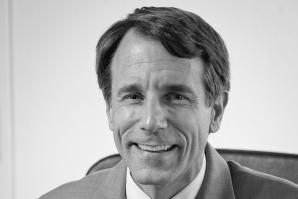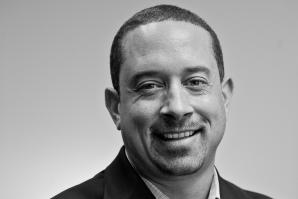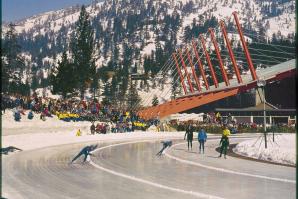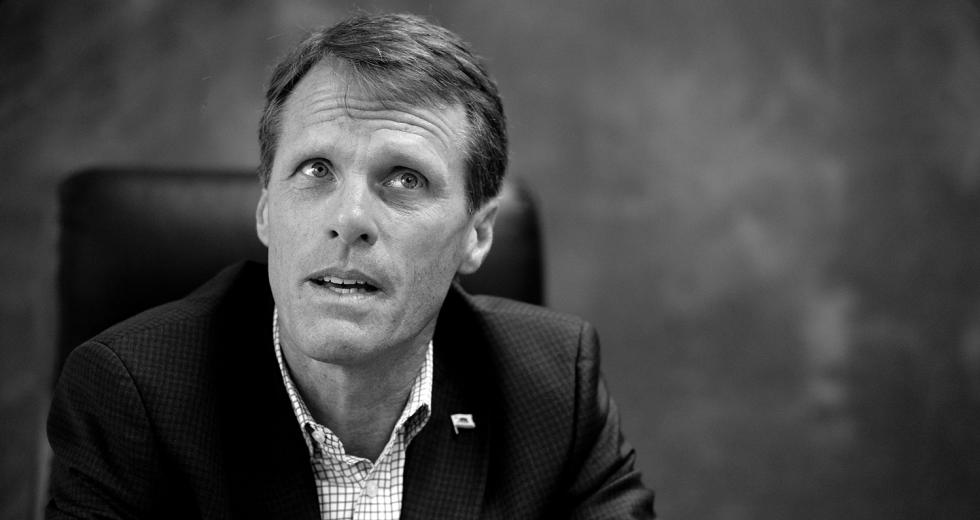A long-time small-business owner before entering politics, California Senator Ted Gaines has become a key figure in some of the most important political crusades facing the Sacramento region in recent years, including the battle to save the Kings and efforts to keep electric carmaker Tesla in the Golden State. We sat down with him to talk about Tesla, his recent run at the state insurance commissioner position and improving California’s business climate.
Condolences on the insurance commissioner race. What’s up next for you?
Well, the insurance commissioner’s race was great for me because that’s my wheelhouse. I understand the insurance business and how it works, so I thought it was a good fit. The challenge was taking on a Democratic incumbent. I learned a lot from it, and there may be other opportunities in the future. I’m looking forward now to running for reelection in the Senate in 2016, and in the meantime I’m going to work very hard to improve the state’s business climate.
Speaking of that, you were particularly active in trying to get Tesla to build its big battery factory here. Unfortunately, Tesla CEO Elon Musk chose Nevada instead. In your opinion, did we do enough to land that project for California?
From my viewpoint, we could always do more. But I do credit the administration for working with us. They were really the lead. I tried to address it within the legislature because I didn’t see any action being taken. A lot of our effort was focused on tax credits, which is good because there’s no real cost to taxpayers for a tax credit. We weren’t going to be taking suitcases of money out of the treasury to give to Tesla. In California, if you create a job, we’ll give you a discount or credit on the tax. We also look at the multiplier effect of a factory that would create [thousands] of jobs. Nevada projects that 22,000 jobs will be created as a result of that factory in the Sparks area. So there would have been revenue coming into the treasury, even with the tax credits. I think we could have gone bigger, but I was briefed that they were also looking for cash in the deal. So then you actually are taking money from the treasury, and you have to ask whether it is worth it.
You carried out one of the more interesting Tesla efforts — your trip to the Texas Capitol in Austin to highlight how that state is so unfriendly to Tesla products. How did that come about, and what do you feel you accomplished?
I think it went fabulous. Gov. [Rick Perry] had come here and said that he wanted to move Tesla back to Texas and that he wanted Tesla vehicles made there and the battery gigafactory there. And I just felt, that’s our baby! There’s an intimate relationship between Tesla and the state of California. We put the grant money down to get the company started. We gave them the tax credits. It was created here in California. So my message basically was that, No. 1, we’re going to fight for Tesla. And No. 2, we want your innovators and entrepreneurs to come to California because we are doing a lot of things right.
It certainly got some attention.
The media was actually very receptive to our message. We made it really clear that you can’t buy a Tesla in Texas. We couldn’t even rent one through private parties. We couldn’t find one. So we finally settled on a cardboard cutout. It was about 6 feet long, and we put it in the background. But it made the point that despite California’s challenges, we still get some things right. We ought to get more things right if we really want to help out our lower class. When you look at California, the statistics show that a quarter of Californians live in poverty. So what are we doing to change that? We’ve got to think outside the box. We’ve got to think about how we move people forward.
Along those lines, it has to be encouraging that we did get into the game, especially after Musk made it clear at the beginning that we had no chance.
That is encouraging. Our effort was bipartisan and focused on job creation, so I don’t want to diminish that and I think we can build upon that. But at the same time, I would like to see some results. It’s hard to make all this effort and then lose it. So let’s see if we can get some victories under our belt, especially with retaining businesses that are thinking of leaving. That’s a whole other effort. I think the Texas trip was very successful in that it put us on the map. It got a lot of media attention, which I think is great, but the issue here is why did Tesla pick Nevada over California, and what can we do to rectify it?
If you had to choose just one or two things lawmakers could realistically do next session to make California more business friendly, what would they be? We’ve made some progress with CEQA, which is often cited as the huge problem. What else can we do?
On the issue of CEQA, one small thing we could do would be to expedite it. If you’re going to litigate a project, then let’s start the process and get it done quickly. Because it’s now being used by people who oppose a project as a foil, to the point where the proponent runs out of money or gets fed up with the delays and moves somewhere else. The intent of CEQA was to mitigate, not to delay and sue and litigate. So if we’re going to allow the litigation to occur, then let it happen within 120 days. It’s an up or down, and we know whether we can move forward or not. I think the other thing that’s coming forward is the greenhouse gas tax. That’s going to impact people buying gasoline in January. I think it needs to be repealed, and I’m going to move forward on that.
That’s moving vehicle fuels under the Assembly Bill 32 cap-and-trade regulation?
That’s right. I think the argument for doing that is not a valid one. When we take a look at the fuel standards for automobiles, we’re looking at 54 miles per gallon by 2025. We’re making huge strides with hybrid or all-electric technology, cars that are getting beyond 50 miles per gallon. Let the marketplace determine where those technologies go. But to add more taxes — especially a regressive tax on folks — is not the pathway to prosperity.
That seems like a pretty heavy lift. The new senate pro tem has made it clear that environmental issues are going to be at the top of his agenda. The governor is making his mark across the country, dealing with climate change. And while Democrats lost their supermajorities in both legislative chambers, they still control both chambers. How doable is it to try to kill one of their core platforms?
I think there were 18 Democrats in the Assembly who wrote a letter to the governor asking him to delay or stop the plan to move fuels under the cap-and-trade program. The governor has made a pledge that he wouldn’t increase taxes without a vote of the people. That’s been oriented around Proposition 30, but isn’t this another example of a tax? So why would he have to sign off or let that happen if we could come up with legislation that would prevent that?
Still, it sounds like it’s going to be a big fight.
Well, if you’ve got 25 Republicans, the number in the Assembly, and you’ve got 18 Dems, you might have a coalition there where you might be able to stop bad things from happening.
Recommended For You

Restraining the Titans
California's insurance commissioner on the importance of veto power over rate hikes
California Insurance Commissioner Dave Jones has spent much of the past decade looking to enact rate regulations on the health insurance industry, first as an Assemblymember and now as the state’s top insurance regulator. We sat down with him recently to talk about Proposition 45, a November ballot measure he supports that would give him the power to reject health insurance rate hikes.

It’s Impolite to Squat
EV owners find it increasingly difficult to plug in
Long before it was widely accepted, Sacramento attorney Mike Polis bought his first electric vehicle. He got started with a Toyota Prius, later upgraded to a Nissan Leaf and now drives a white Chevy Volt. On average, he saves more than $3,500 a year over his gas-powered counterparts, he can use the HOV lane as a single occupant and he charges his car for free at work.

Pitching California
It's Kish Rajan's job to sell California to business—so what's his spiel?
Kish Rajan is the director of GO-Biz, the California Governor’s Office of Business and Economic Development. Previously, he was the director of North American sales for SanDisk, was an aid to Phil Angelides during his ’94 run for state treasurer and was a legislative aide to California Sen. Barbara Boxer.

Bringing Home the Torch
The Sierra sets its sights on 2022 Olympics
Fifty years after the VIII Olympic Winter Games in 1960 brought the world to the slopes of Squaw Valley USA, and after years of toil and dashed hopes, a two-state effort aimed at bringing the games back to the Reno-Tahoe region in 2022 is gathering steam.



